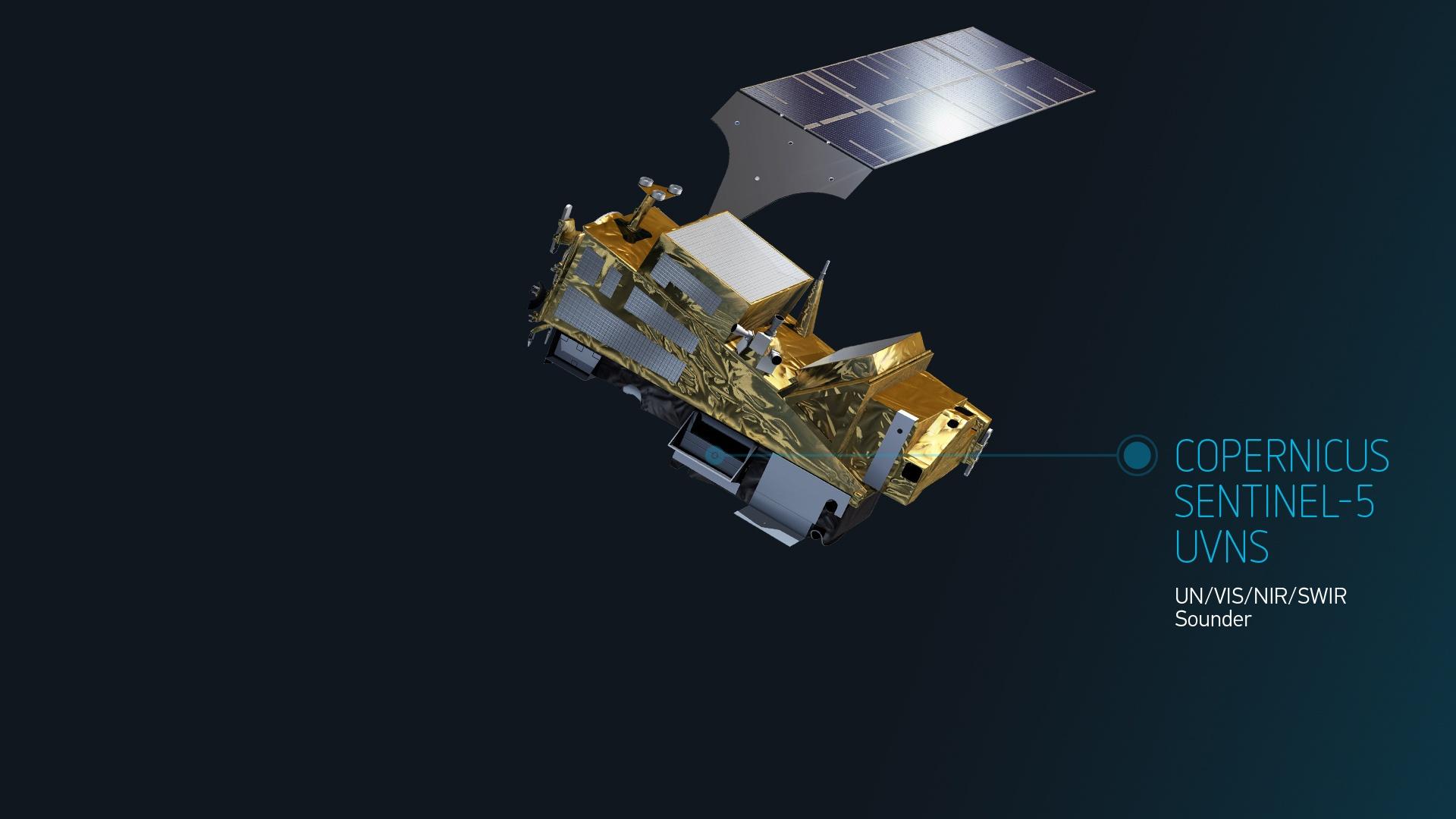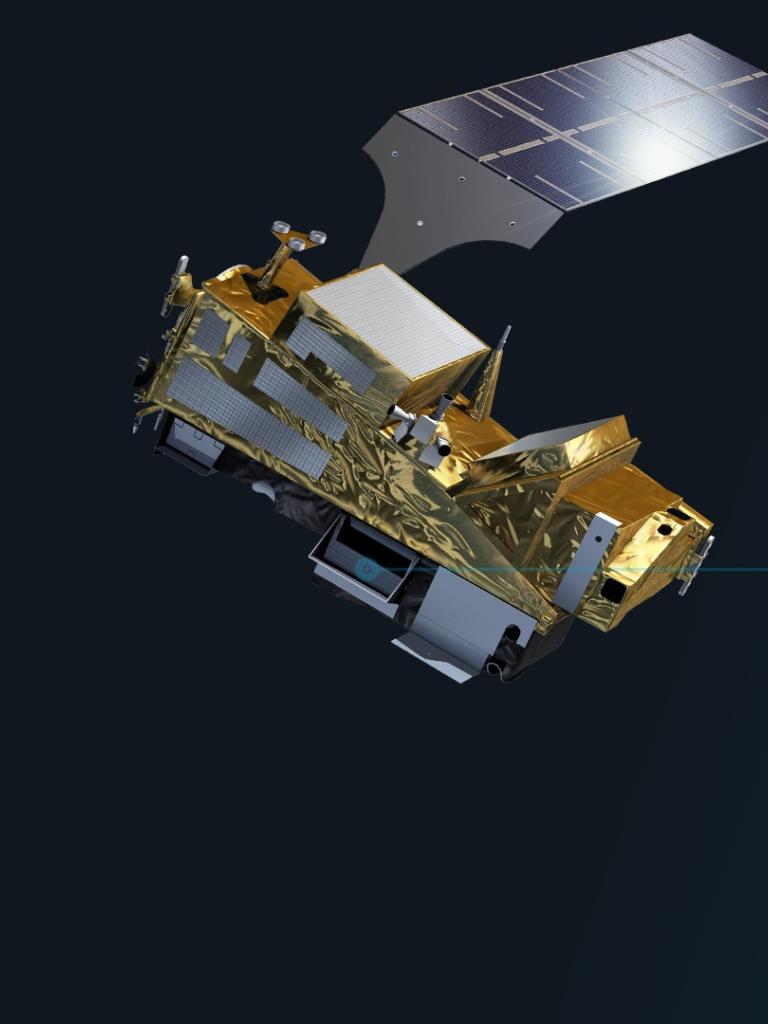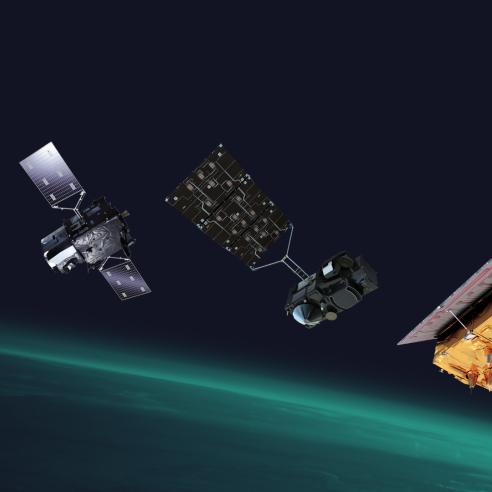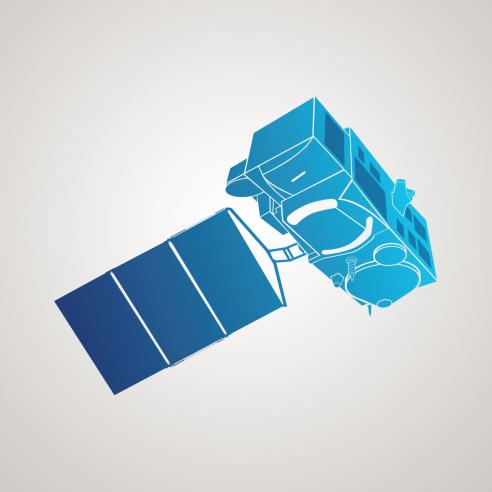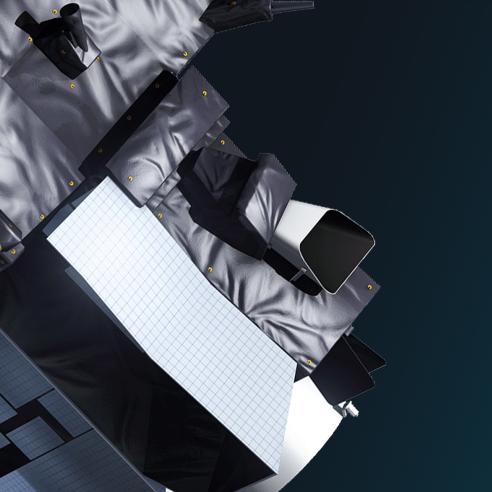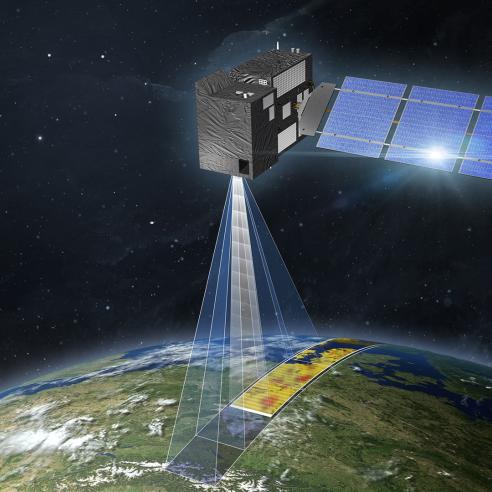13 February 2025
19 May 2020
Copernicus Sentinel-5 will monitor air quality, trace gases and aerosols at high spatial resolution with daily global coverage.
The Sentinel-5 instrument, the Ultraviolet Visible Near-infrared Short-wave infrared (UVNS) spectrometer, will be carried on EUMETSAT’s Metop Second Generation (Metop-SG A) satellites in polar orbit.
The UVNS instrument will work together with the other onboard instruments, which include the Infrared Atmospheric Sounding Interferometer (IASI-NG), the Visible Infrared Imager (METImage) and the Multi-viewing Multi-channel Multi-polarisation Imager (3MI).
The mission will monitor nitrogen dioxide, ozone, sulphur dioxide, methane, carbon monoxide, and other trace gases.
The data will be used by the Copernicus Atmosphere Monitoring Service (CAMS) and will support global air quality and pollution monitoring and climate applications.
Ultraviolet Visible Near-infrared Short-wave infrared (UVNS)
The Sentinel-5 mission is a high resolution spectrometer system operating in the ultraviolet to shortwave infrared range with seven different spectral bands: UV-1 (270-300nm), UV-2 (300-370nm), VIS (370-500nm), NIR-1 (685-710nm), NIR-2 (745-773nm), SWIR-1 (1590-1675nm) and SWIR-3 (2305-2385nm) with a sampling resolution of 7km (42km for UV-1).
